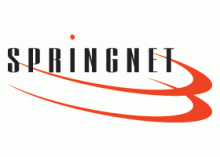Carl Junction Pulls Out of Public Private Partnership
In the spring, we reported on a public private partnership agreement between the community of Carl Junction and Wi-Fi provider Aire Fiber. According to City Administrator, Steve Lawver, the City Council had second thoughts and pulled out of the deal.
Even though the partnership has ceased to be an option, the people of Carl Junction will still have better connectivity. Aire Fiber found the interest level was so intense that it will independently deploy the equipment to serve the community's 5.6 square miles and approximately 7,400 people.
As part of the abandoned partnership agreement, the city would have paid for and provided locations to mount necessary equipment. Aire Fiber would have handled installation, management, and technical aspects needed to keep the network up and running. In exchange, the city would have received 10 percent of the gross revenue from the network. The system would have cost an estimated $400,000 - $450,000 to deploy and both entities estimated just 10 percent of the market would have allowed them to break even.
Now the city has typical water tower lease agreements with Aire Fiber. Each tower mounting Aire Fiber equipment brings in $100 per month.
Carl Junction has been searching for better Internet access for its businesses, schools, and residents for several years. In 2012 they commissioned a feasibility study and decided in 2013 to move forward with plans for a fiber network. Unfortunately, the community had to seek other options when it chose not fund the $5.2 million project.
As a post mortem, Lawver advises other city officials to take the time to educate elected officials and not rush the process, especially when the time comes for final approval.
Our process from FTTH feasibility to this final agreement took 4 or 5 years. Be patient. Understand that if you get down to the final agreement there is a good chance you may be the only person left that remembers the whole process.






